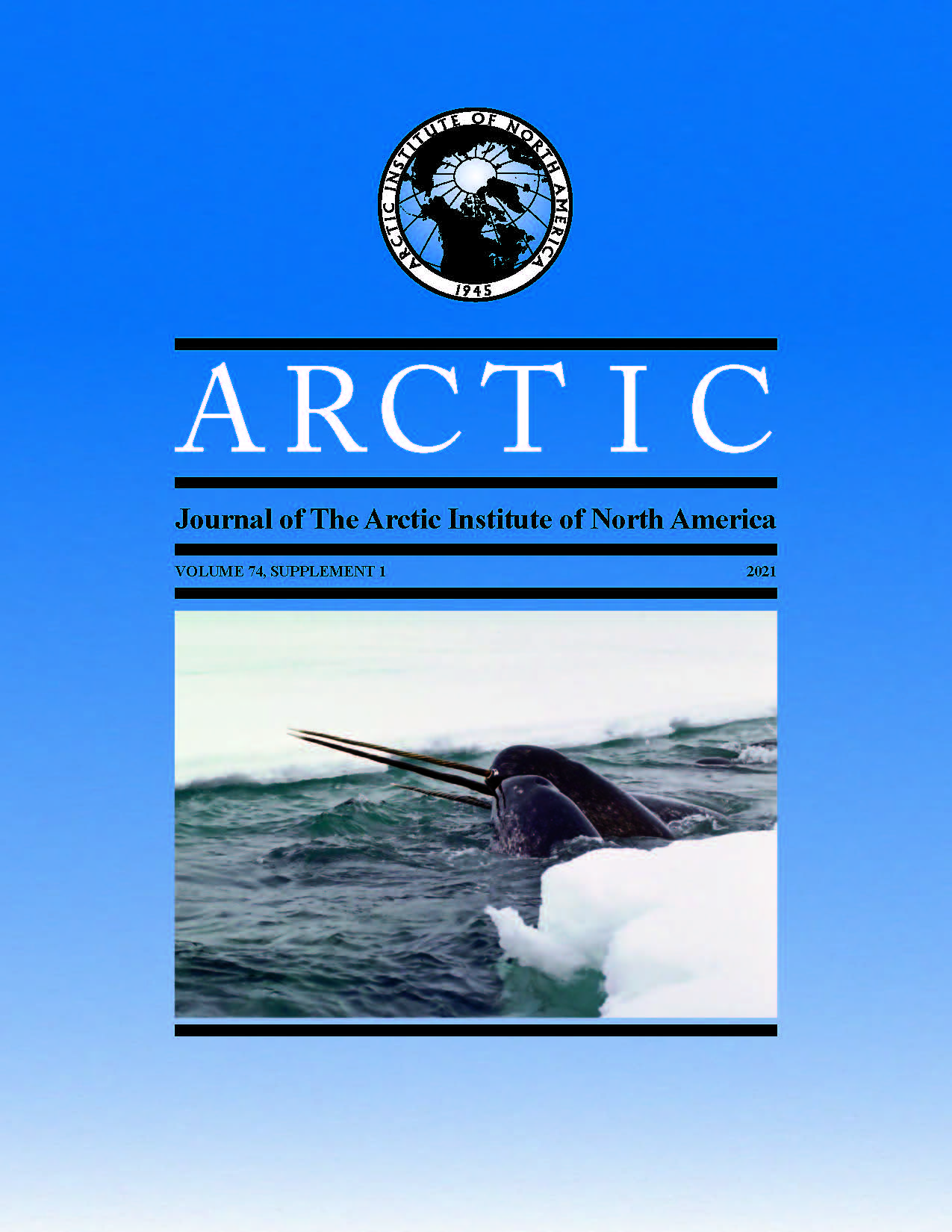Inuit Food Insecurity as a Consequence of Fragmented Marine Resource Management Policies? Emerging Lessons from Nunatsiavut
DOI :
https://doi.org/10.14430/arctic74372Résumé
Au fil de l’histoire, les communautés inuites de l’Arctique ont dépendu à grande échelle des ressources marines vivantes de leurs eaux côtières pour leurs besoins alimentaires, pour soutenir la cohésion des communautés et pour rehausser le bien-être individuel et collectif. La compréhension inadéquate des conditions relatives aux stocks marins côtiers et à leur dynamique ainsi que les échecs ayant caractérisé les anciennes méthodes de gestion des pêches menacent maintenant l’accès sécuritaire à ces ressources à des fins d’alimentation et de nutrition. Nous nous penchons sur le degré d’intégration des politiques fédérales contemporaines de gestion des ressources marines et alimentaires au Canada qui, jusqu’à maintenant, n’ont pas réussi à amenuiser l’insécurité alimentaire dans l’Arctique, ce qui suggère qu’il faut plutôt traiter les causes que les symptômes. En nous appuyant sur des données émanant du Nunatsiavut, dans le nord du Labrador, nous évaluons les limites en matière de gouvernance des ressources marines qui ont des incidences sur l’accès aux sources de nourriture importantes qui revêtent une importance traditionnelle. Nous explorons les possibilités d’intensification des récoltes de subsistance et d’amélioration de l’accès aux pêcheries commerciales pour atténuer l’insécurité alimentaire chez les Inuits, et nous argumentons en faveur de la pertinence d’évaluations plus poussées des ressources marines, d’une gestion plus concentrée des pêches et de l’intégration avec des politiques conçues pour diminuer l’insécurité alimentaire. Fait important, l’absence de méthodes pour tenir compte des changements en matière de ressources marines récoltées à l’échelle locale menace non seulement l’alimentation des personnes et des ménages, mais également l’intégrité sociale, économique et culturelle des communautés inuites. Par ailleurs, nous décrivons les besoins en surveillance et proposons l’utilisation d’indicateurs qui tiennent compte de l’apport des ressources marines récoltées à l’échelle locale en vue de rehausser la sécurité alimentaire et d’un cadre de référence permettant le recours aux connaissances et aux observations locales. En nous appuyant sur les leçons émanant de la recherche du Nunatsiavut, nous établissons un fondement permettant de mieux comprendre les legs politiques et institutionnels qui jouent un rôle dans l’insécurité alimentaire au Labrador et nous discutons de la manière dont l’intégration plus approfondie des politiques de gestion des ressources marines et alimentaires serait susceptible d’aider à atténuer cette insécurité alimentaire.



